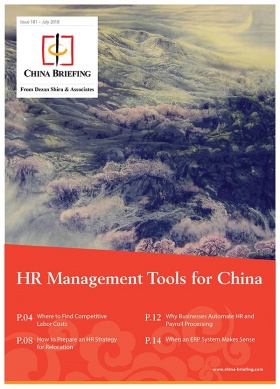China Tax Cuts Worth RMB 45 Billion to Support Economy Amid Slowdown
On August 30, China’s State Council announced RMB 45 billion (US$6.59 billion) worth of tax cuts for businesses and investors.
With the tax cuts, the Chinese government hopes to reduce the burden on small and micro-enterprises, encourage investors to continue lending, and ensure capital flow in the economy.
The tax cuts come in the form of three main targeted measures.
1. Companies that have suspended production or business due to restructuring or cutting of overcapacity can have their real estate tax and land-use tax either reduced or exempted altogether.
Additionally, investors in social security funds and basic pension funds can enjoy tax relief, while postal savings banks with large amounts of agriculture-related loans can pay a preferential value-added tax (VAT) rate of three percent on interest of such loans.
2. Lenders to small- and micro-enterprises can enjoy expanded value-added tax (VAT) exemption on loans to such enterprises, with a credit quota of up to RMB 10 million, up from the previous RMB 5 million. This measure is valid from September 1, 2018 to December 31, 2020.
3. Foreign institutions can exempt their corporate income tax (CIT) and VAT on interest gains from onshore bond market investments for three years.
The tax cuts come amid a deepening trade war with the US and signs of a slowing economy.
The US has implemented 25 percent tariffs on US$50 billion worth of Chinese goods, and may soon slap tariffs on US$200 billion more.
Meanwhile, the latest Caixin/Markit Manufacturing Purchasing Managers’ Index (PMI) showed that manufacturing grew at the slowest pace in 14 months in August, while export orders shrank for the fifth month in a row.
The PMI results are just the latest of several data points that suggest that China’s economy is slowing down.
Other recent initiatives designed to boost the economy amid the US-China trade conflict include increased infrastructure spending, tariff cuts for select Asian countries, and a significant IIT reform that arrived sooner than expected.
Nevertheless, the tax cuts cannot be considered as merely a reaction to the trade war. At this year’s Two Sessions meetings in March, Chinese Premier Li Keqiang promised to cut RMB 800 billion (US$117.06 billion) worth of taxes for businesses and individuals in 2018.
To this end, China has already cut an estimated RMB 400 billion (US$58.53 billion) by lowering its VAT rates in May, and slashed a further RMB 60 billion (US$8.78) for small- and micro-enterprises and high-tech firms in April.
As China’s economy continues its slowdown due to both domestic and international factors, businesses can expect more actions to stabilize the economy. However, with a national derisking campaign in motion to clamp down on debt, significant stimulus measures might not be on the cards.
About Us
China Briefing is produced by Dezan Shira & Associates. The firm assists foreign investors throughout Asia and maintains offices in China, Hong Kong, Indonesia, Singapore, Russia, and Vietnam. Please contact info@dezshira.com or visit our website at www.dezshira.com.
- Previous Article Mainland China Residence Permit: Applicability for Taiwan, Hong Kong, Macau Residents
- Next Article China’s New IIT Law: Prepare for Transition







